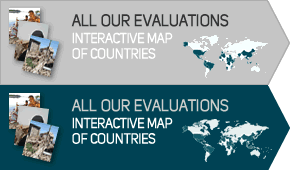Description of project
As part of UNDP’s Workshop on aid management tools, DARA reviewed the performance of the DAD database in Afghanistan and other applications such as DCAS, UNICEF’s, DevInfo, and the Egyptian Government’s DECODE.
The Secretariat of Development Policy and the Group for the Reduction of the Poverty at UNDP, in collaboration with the UNDP branch office in Burkina Faso, and with the Cooperation Department of the Ministry of Finance and Budget of Burkina Faso, organized a workshop in September 2004 in Ouagadougou. The workshop focused on external aid management for development, and specially on the answers that the instruments of management must offer to the development of policies aiming to harmonise donors’ practice and criteria for intervention. The aim of the workshop was to analyze the existing gaps in the technical Preparation of the Reports on Reduction of the Poverty (PRRPs).
More than 50 participants from 25 different countries participated in the workshop, as well as a great number of representatives from UNDP and other international organizations.
As an organization representative of civil society, DARA and FRIDE presented the report and conducted the corresponding discussion on the impact of the institutional infrastructures reforms carried out in the LDCs concerning the efficiency of external aid. The study “Towards a new Era in Development Aid: Building Effective Institutional Infrastructure in LCDs” included case studies in 8 different countries: Ivory coast, Malaysia, Morocco, Trinidad and Tobago, Uganda, Pakistan, Peru and Poland. At the end of the workshop conducted by DARA, some recommendations and conclusions were achieved regarding the Aid Harmonisation for international donors.

Share this